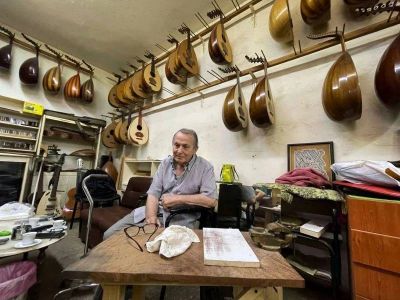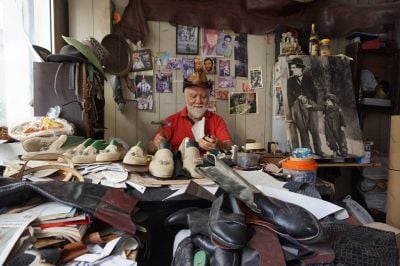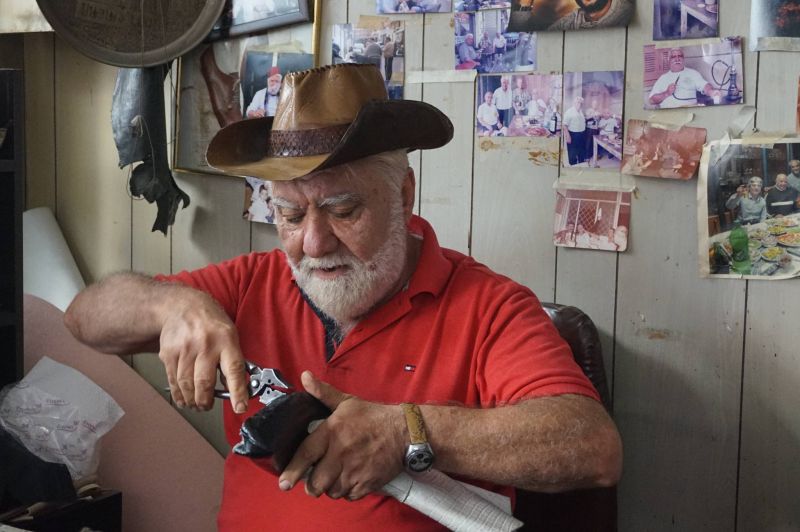
Hagop Kechichian, aka Jackson Shoes. (Credit: Carla Henoud/L'Orient-Le Jour)
He may not be a member of The Jackson 5, but he still got his nickname from the pop band.
“I've always loved their music,” Hagop Kechichian says. “When I was young, I sang in English. They called me Jackson. I couldn't make a living out of it, so I've been singing to myself for 50 years and dancing to Greek music when I'm happy.”
Although he likes to joke about everything, especially the things in his life that are no longer easy, Kechichian once knew what it was like to be a successful shoemaker who made “more than 100 pairs of men's shoes and boots each day.”
“I had 20 employees, whom I paid well,” he recalls.
Then came the economic crisis, and Chinese competition.
“How do you expect us to be competitive when they flood the world with their cheap goods?” Kechichian asked.
In his workshop in Burj Hammoud, Jackson does not thin his words. He takes pride in visitors who show up to greet him or hand them a pair of shoes to repair, if they can no longer afford to buy new ones.
He is also proud of the big black and white portrait of him hanging on the door — he has not totally lost his fashionable touch, almost 40 years later.
The poster shows a young Jackson with long sideburns, a spread collar shirt, impressive snakeskin boots, and Ray-Bans sunglasses.
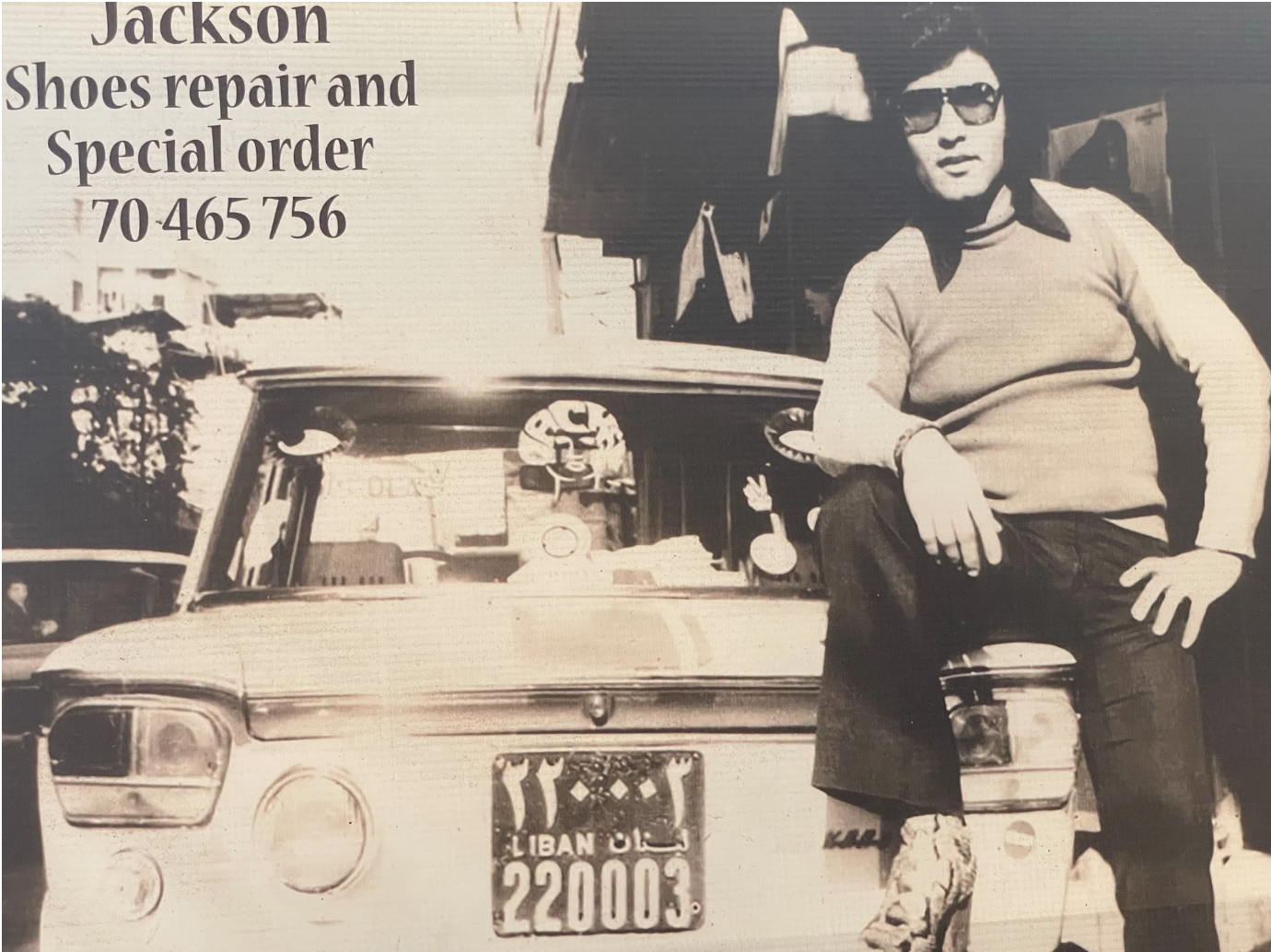 An old advertisement depicted a young Hagop Kechichian. (Credit: Carla Henoud/L'Orient-Le Jour)
An old advertisement depicted a young Hagop Kechichian. (Credit: Carla Henoud/L'Orient-Le Jour)
Today, at age 74, Jackson, with his long white beard that gives him the look of a fisherman on the dock, is giving a leather Stetson hat and boots. He is still “comfortable in his own shoes,” and keeps up with the times.
“What do you think? Should I keep the beard?” Jackson quips.
In his disordered shop—often deprived of electricity, strewn with hammers, pliers, and pots of glue—Jackson says he is in his element, like a fish in water. He is surrounded by piles of cardboard boxes and pairs of moccasin shoes that he says he will get to “tomorrow.”
Behind him, on a stand, a pile of hats sits across from a Charlie Chaplin poster. Family pictures and photos of Jackson happily smoking shisha adorn the wall of his workshop.
“For 40 years I have smoked. But I cannot do it anymore. A few weeks ago, I could not breathe, and the doctor said no more smoking for me,” Kechichian recounts.
“Two days in the hospital cost me LL50 million. So, I told him, I will continue the rest of the treatment when I have money. There's nothing you can do about it,” he adds.
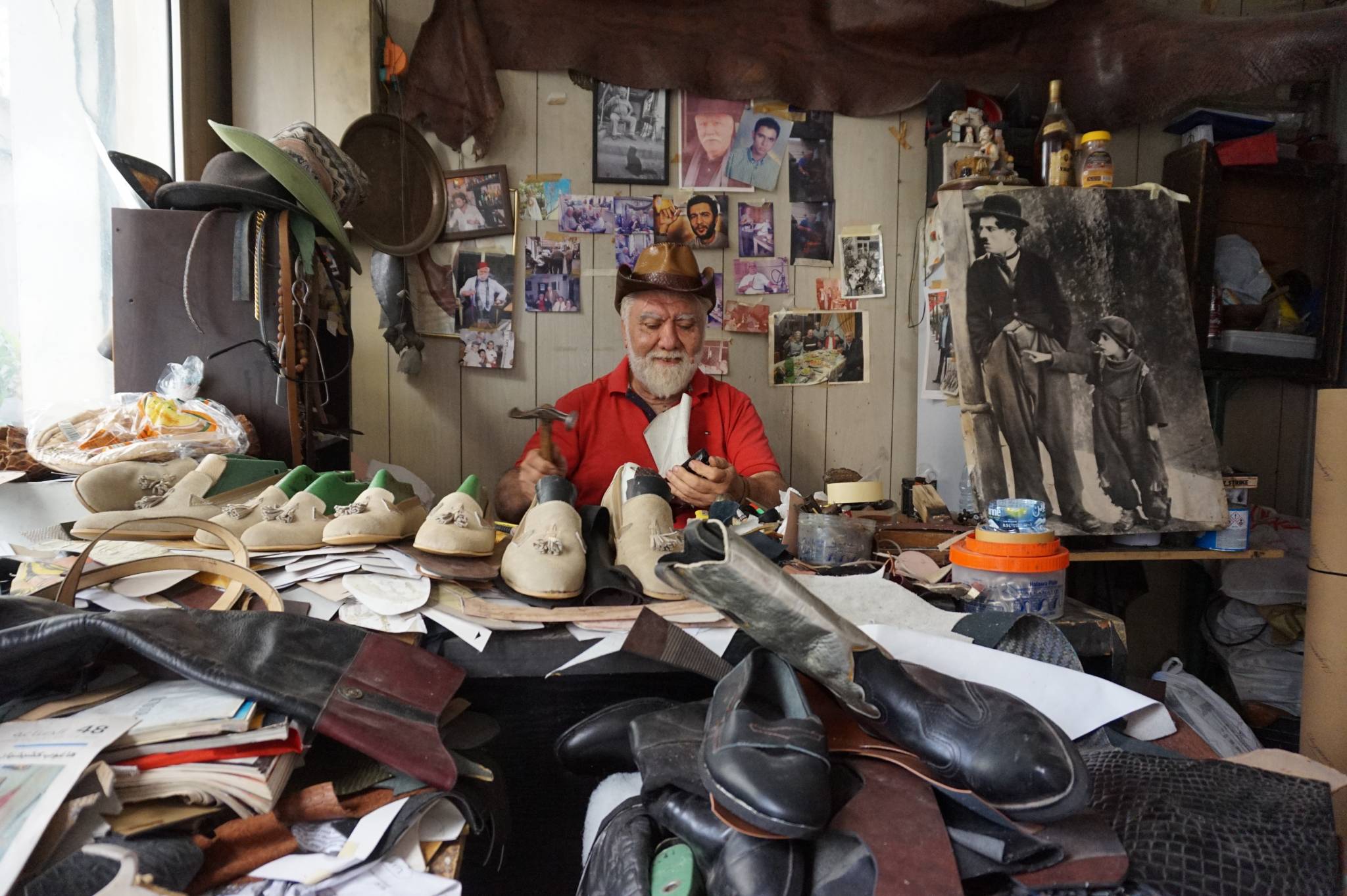 Today, Kechichian focuses on small productions—special orders or repairs. (Credit: Carla Henoud/L'Orient-Le Jour)
Today, Kechichian focuses on small productions—special orders or repairs. (Credit: Carla Henoud/L'Orient-Le Jour)
Without bragging
Jackson arrives early at his workshop every morning. It's become his main place of residence.
“Work is my passion,” he says through the nails actuated between his teeth as he taps. “I cannot stop. I don't do it for the money, but to pass the time pleasantly.”
Every day, he leaves his home at 4 am to meet his friends and next-door neighbors in Bourj Hammoud.
“When I get here, I have coffee with the butcher on the corner. We hang out before I get to work ... I close the store around 3 or 4 pm, it depends on my mood and the electricity,” he says.
This passion and know-how for shoemaking was passed on to him by his father.
“My father specialized in orthopedic shoes. After school, he used to teach me the basics of the trade. At the age of 12, I dropped out of school to work with him,” Kechichian says, adding “I wanted to continue my studies, but he needed me. He was a 'professional shoemaker' you know? He opened his own shop in 1959.”
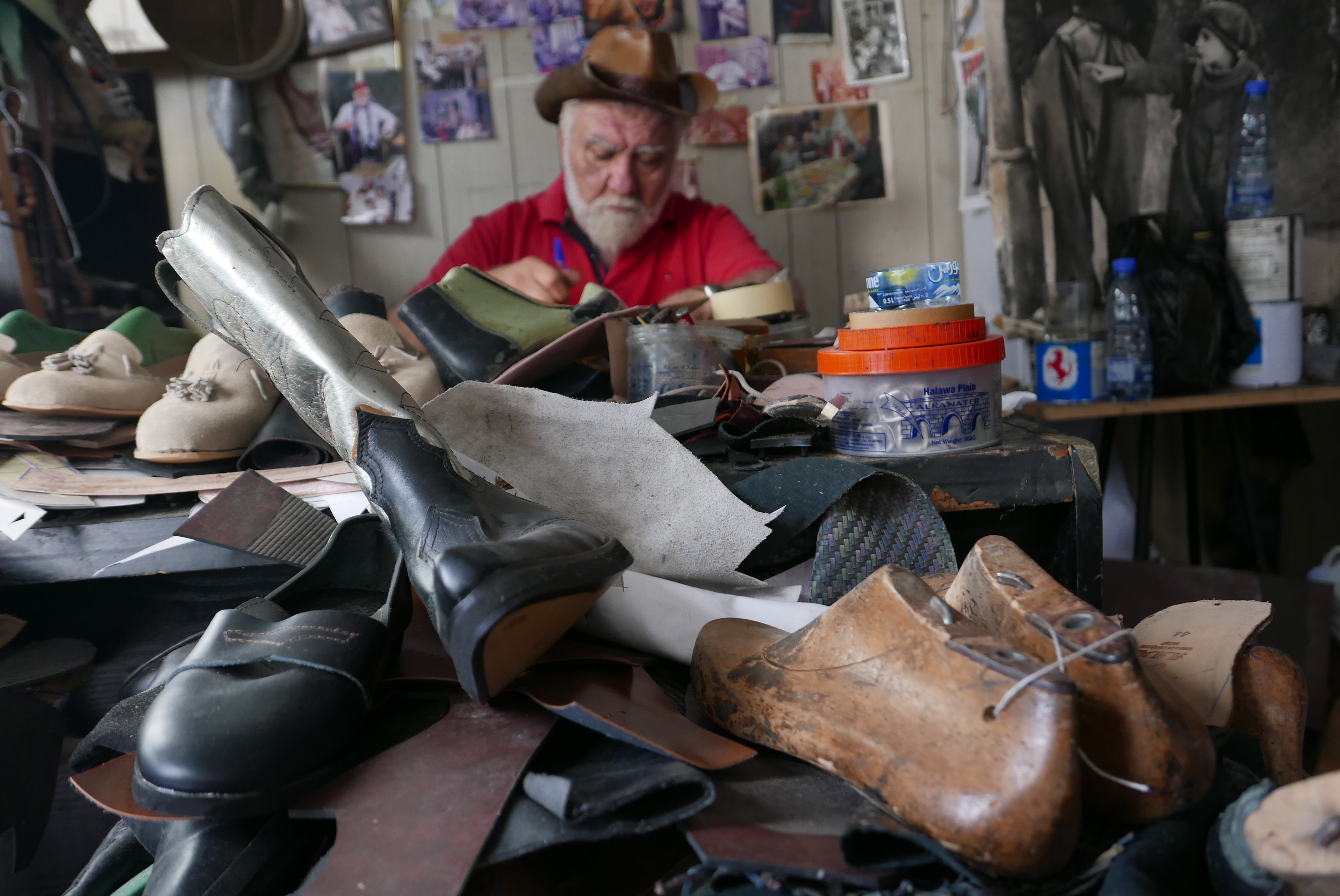 Hagop Kechichian, aka Jackson Shoes, at work in his workshop. (Credit: Carla Henoud/L'Orient-Le Jour)
Hagop Kechichian, aka Jackson Shoes, at work in his workshop. (Credit: Carla Henoud/L'Orient-Le Jour)
Almost 10 years later, in 1968, Kechichian opened his own.
During the “good years,” Kechichian became Jackson Shoes and built a solid reputation in the neighborhood.
His shop offered shoes and boots for the anonymous and the famous, but also accessories for the Rahbani musicals, including Saif 840 by Ghassan Saliba, Toni Hanna, Sabah, the dabke troupe Fahed Abdallah, and Papou Lahoud.
“All this is me,” he says as he holds up photos yellowed by time. "I don't want to brag, but I am a one-man show."
Today, Kechichian is focused on small productions—special orders or repairs for men and women. He spends his time in his refuge, away from the world and his worries.
“Each piece normally needs eight people to be made, between creating the model, cutting, sewing, and assembling. I do it all alone. In 24 hours, you have a shoe ready. Without bragging.”
A father of three, he admits that he did not encourage his children to follow in his footsteps.
“This business is going to die,” he says. “But for me, it is what I do. Things will be fine. I don't know how. It is in God's hands.”
This article was originally published in French in L'Orient-Le Jour. Translation by Sahar Ghoussoub.
